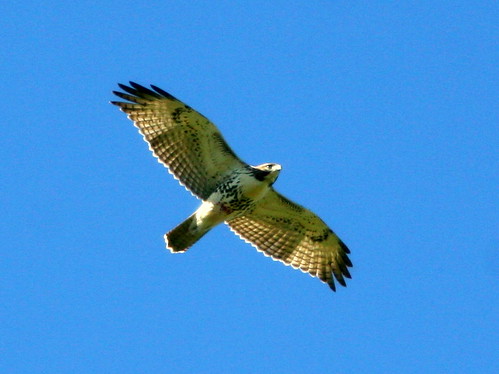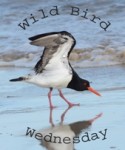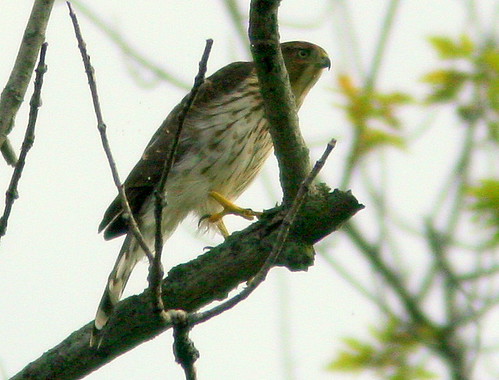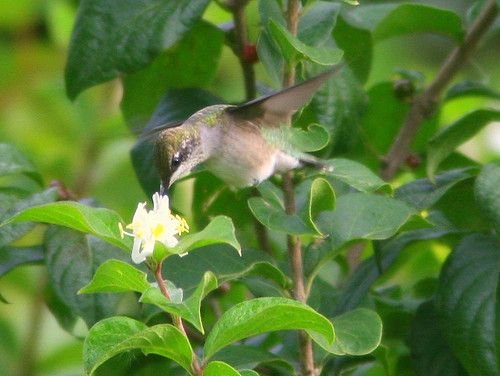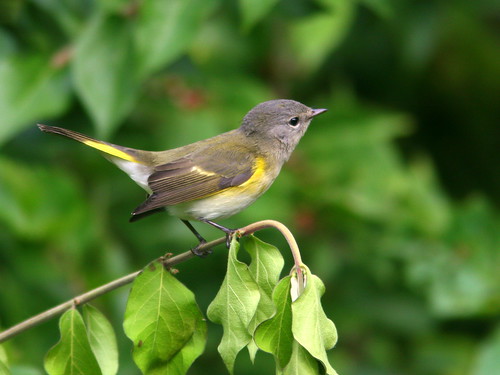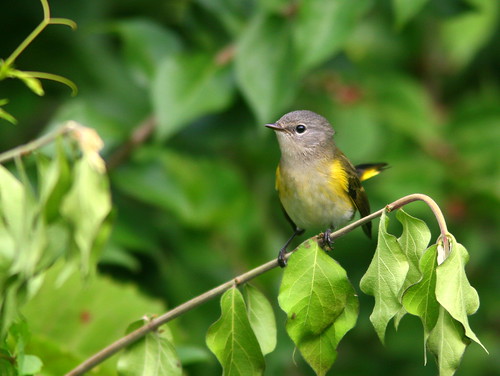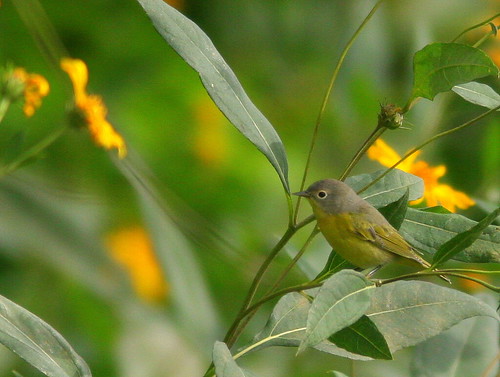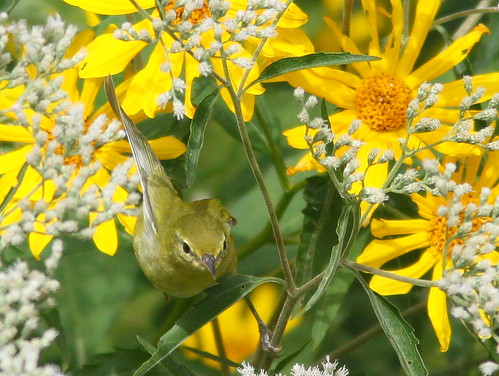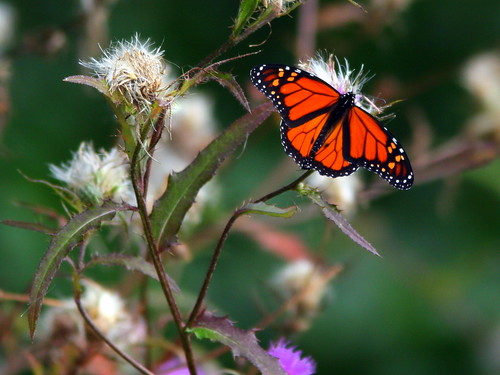This morning we got out early to Lippold Park, located on the east bank of the Fox River in Kane County, Illinois. The temperature was a brisk 58 degrees, but it quickly warmed up into the mid-60s. We hoped to see warblers, and we were not disappointed in their numbers, though the species mix was limited.
The river was quite placid, as we have not had much rain the past couple of weeks. This is the view looking across to the west bank: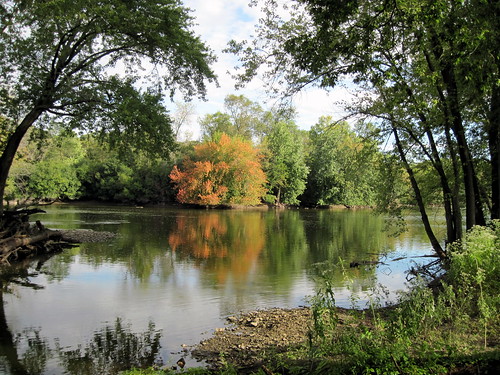
At first it was very quiet, and we soon found out why. A Cooper’s Hawk was standing sentinel over the prairie from a riverside treetop:
A few minutes after the hawk’s departure, the small birds began appearing. A Gray Catbird was one of the first to poke its head out of the shrubs: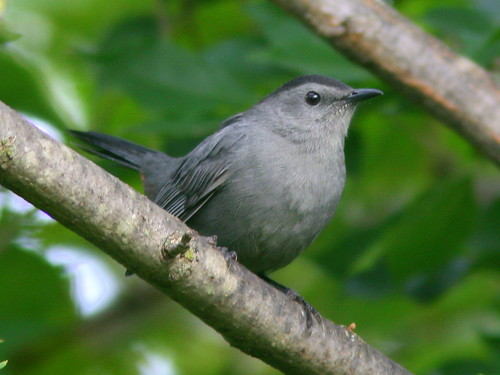
We have been seeing quite a few hummingbirds this week. There were at least four along the river bank, and I wasted quite a few megapixels trying to get an image of one. This was the best I could do:
The first warblers we saw were American Redstarts. No red and black adult males showed up, so we saw only “Yellow-starts.” All appeared to be immatures, judging by the lack of color in their wing coverts.
They darted about, flaring their tails to display the bright yellow patches.
Note the redstart’s typical drooped-wing posture:
We walked northward along the bank, the prairie on our right and stream-side trees and flower patches on our left. Many goldfinches were feeding on the seed heads. Among them we spotted a Nashville Warbler.
This is a female, which shows less yellow on its belly than the male. Both have gray heads, yellow throats and conspicuous white eye rings:
Then, we noticed several Tennessee Warblers foraging for insects in the flowers. As we approached, the warblers stayed in place after the goldfinches flew off. The warblers were very active and it was difficult to get a full body view of any of them.
This Tennessee Warbler hangs head-down, the better to find a juicy bug :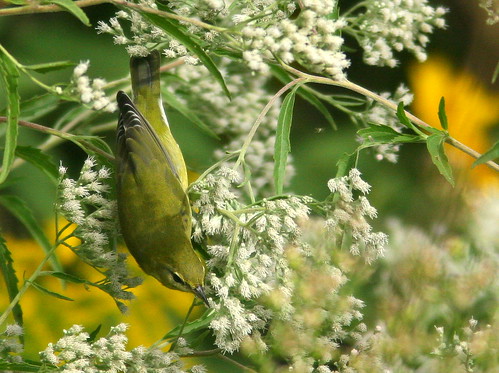
Though partially hidden, this Tennessee Warbler shows off its distinctive eye markings and white under its tail. The extensive white on its belly indicates that it is probably an adult female: 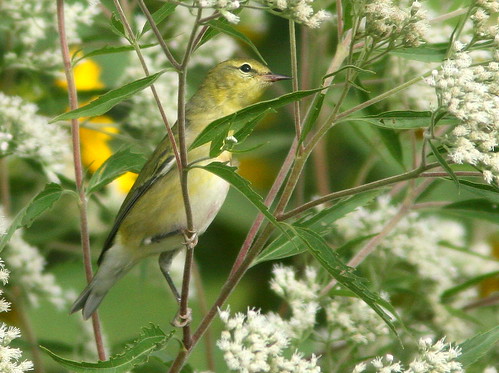
One Tennessee Warbler flew directly towards me as I was taking its picture:
Scores of Cedar Waxwings settled in to attack an abundance of berries:
We were not able to pin down the identity of this little flycatcher. It is either a Willow or Alder Flycatcher, nearly identical in appearance and separable from each other by voice (click on the photo to see a close-up of its face and bill): 
Monarch butterflies are migrating through:
We saw a Magnolia Warbler, but it did not pose for its portrait. Yesterday morning, this one appeared at Nelson Lake:
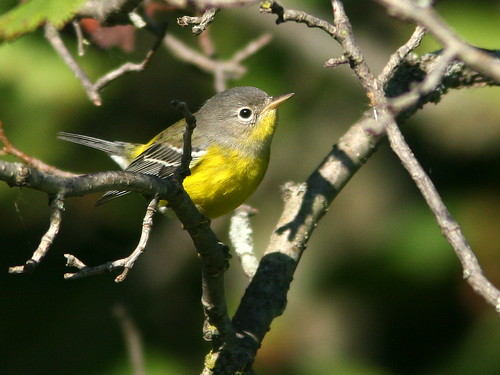
This male American Goldfinch is molting into its somber winter uniform: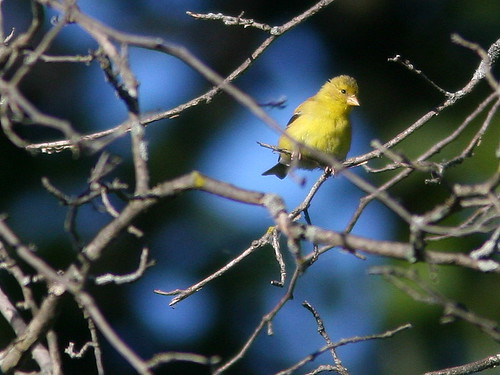
No threat to small birds, a Red-tailed Hawk floats lazily above: